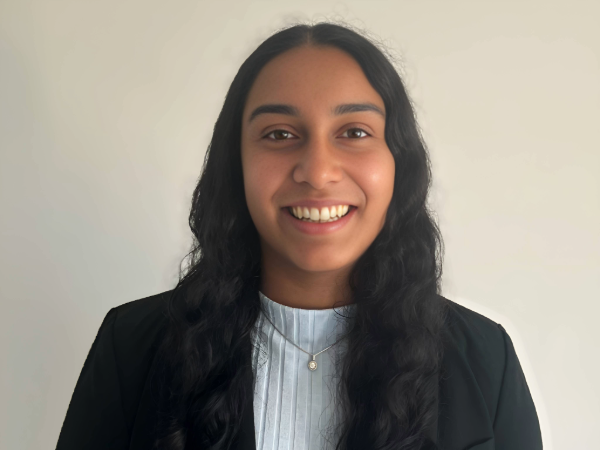 Akanksha Malepati, a third-year medical student in the M.D. program at the UAB Heersink School of Medicine, is deeply engaged in ophthalmologic research that spans both systemic disease and pediatric trauma. With a sharp focus and a personal connection to her work, she brings a high level of commitment to every research endeavor she undertakes.
Akanksha Malepati, a third-year medical student in the M.D. program at the UAB Heersink School of Medicine, is deeply engaged in ophthalmologic research that spans both systemic disease and pediatric trauma. With a sharp focus and a personal connection to her work, she brings a high level of commitment to every research endeavor she undertakes.
Malepati’s research portfolio is rooted in strong mentorship and a diverse range of subject matter. She is currently involved in two primary projects. The first is under the guidance of Krupa Patel, M.D., associate professor in the Department of Ophthalmology and Visual Sciences, and Robert Tauscher, M.D., assistant professor in the Department of Ophthalmology. The second project is mentored by Maria Grant, M.D., professor in the Department of Ophthalmology and Visual Sciences.
With Patel and Tauscher, Malepati is investigating long-term visual outcomes and follow-up adherence in pediatric patients diagnosed with abusive head trauma (AHT). This retrospective study, designed to uncover barriers to consistent care, utilizes RStudio for statistical analysis and applies multivariate logistic regression with bootstrapping techniques to evaluate predictors of follow-up adherence.
“In our AHT cohort, we found a follow-up adherence rate of about 50%, but no significant demographic predictors,” Malepati explained. “This indicates that targeted interventions are needed to improve continuity of care for this vulnerable population.”
At the same time, Malepati is continuing her Medical Student Summer Research Program (MSSRP) project with Grant, focusing on the role of insulin-like growth factor-1 (IGF-1) in diabetic retinopathy and diabetic macular edema. Her role in this study is comprehensive—she has assisted with patient recruitment, collected blood samples, captured retinal imaging using optical coherence tomography angiography (OCT-A), and conducted statistical analysis using GraphPad Prism. The research team quantifies serum IGF-1 levels using ELISA, a lab-based immunoassay.
Recent findings from the study revealed that serum IGF-1 levels were significantly higher in individuals with type 2 diabetes who did not have diabetic retinopathy, compared to non-diabetic controls. Among diabetic patients, those with retinopathy had lower IGF-1 levels than those without. Building on these results, the next phase of the study will correlate IGF-1 levels with OCT-A imaging data to further explore the relationship between circulating IGF-1 and diabetic eye disease.
For Malepati, this work is more than academic—it’s personal. A family history of vision-related complications has strengthened her commitment to ophthalmology. “My work with Dr. Grant holds a significant personal connection, as my grandfather suffers from refractory diabetic macular edema (DME). I am grateful for the opportunity to meaningfully contribute to our understanding of the detection and management of the disease.,”
Malepati’s journey into research began before medical school, during her undergraduate years at the University of Michigan. There, she worked with Michal Olszewski, DVM, Ph.D., professor of Internal Medicine, Pulmonary and Critical Care Division, who helped shape her understanding of the broader impact of scientific inquiry. “Dr. Olszewski taught me how research has the potential to not just impact one patient's life but several,” she said. This early exposure to research guided her decision to join the MSSRP at UAB.
Mentorship continues to play a vital role in her development as both a student and a future physician-scientist. “All three of my mentors have gone above and beyond to support my growth, both professionally and personally,” she emphasized. “Shadowing Dr. Patel in the clinic has given me a firsthand look at how one can be both a compassionate clinician and a dedicated mentor. Dr. Grant has helped me appreciate the eye not just as an isolated organ, but as a window into systemic health.”
Malepati’s dedication and growing expertise have already earned her a place on a national stage. She recently presented her findings on AHT follow-up outcomes at the American Association for Pediatric Ophthalmology and Strabismus (AAPOS) conference, where she served as first author—an important achievement in her early research career.
Looking ahead, Malepati is committed to a career that integrates discovery, clinical excellence, and teaching. “I plan to continue research throughout my career and pursue a role in academic medicine, as it integrates my passion for clinical care, mentorship, and research.”